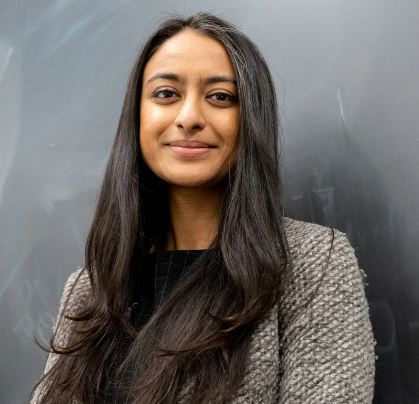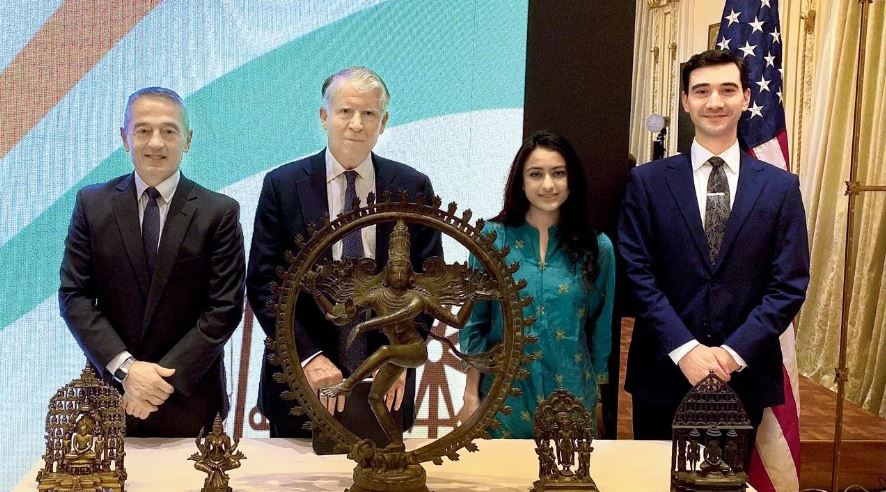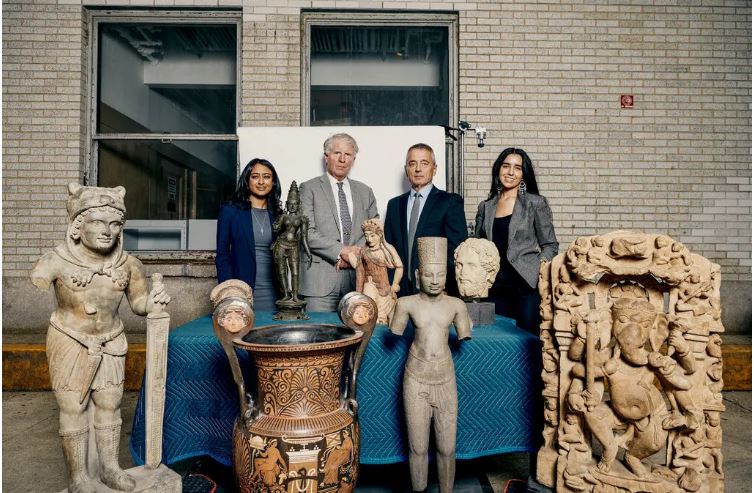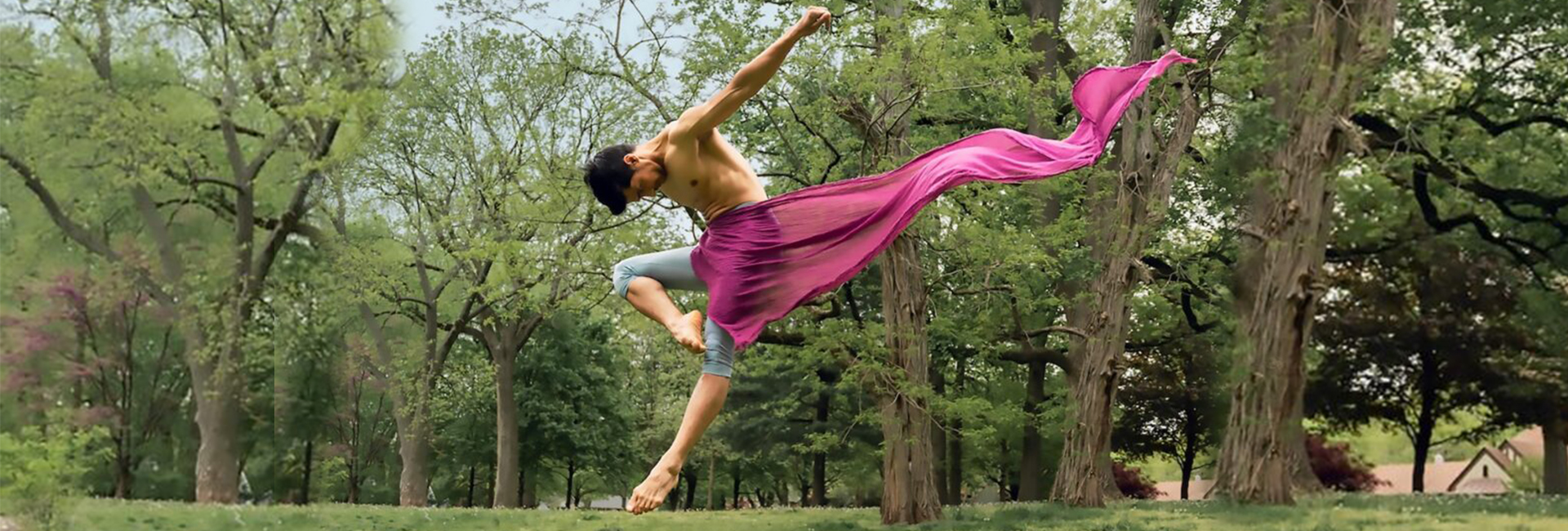(March 22, 2023) In 1990, when former US President Barack Obama was in his second year at Harvard Law School, he created history by becoming the first black president of the Harvard Law Review – a monthly journal comprising 2500 pages per volume published every month from November to June.
This year, history has been made once more by Apsara Iyer, who became the first Indian-origin female to be elected the president of the prestigious journal in its 137-year history. The second year student succeeded Priscila Coronado and has begun her full-time volunteer position as editor-in-chief, supervising the law review’s team of nearly 80 editors.
“Since joining the Law Review, I have been inspired by her (Priscila Coronado’s) skilful management, compassion, and capacity to build vibrant, inclusive communities. I am so grateful that we ‘Volume 137’ inherit her legacy, and I am honoured to continue building on this important work over the next year,” said Apsara after being elected.
Apsara Iyer ’24 was elected the 137th president of the Harvard Law Review. Prior to attending HLS, she worked at the Manhattan District Attorney’s Antiquities Trafficking Unit where she investigated art crimes https://t.co/4xFzUSvlRr @HarvLRev
— Harvard Law School (@Harvard_Law) February 5, 2023
Overseeing a rich legacy
Launched in 1887, by former Supreme Court judge Justice Louis D. Brandeis, the Harvard Law Review is an entirely student-edited journal. It is the world’s most impactful student law journal, among the 143 published around the world.
According to the Review’s website, “the journal is designed to be an effective research tool for practicing lawyers and students of law.” Apart from student contributions, the review features write-ups from professors, judges, and solicits who contribute articles, analysis of leading cases, comments on recent decisions by courts and developments in the field of law. The students on the team follow a rigorous editorial process to produce the hefty annual volume.
Apsara’s academic journey
The Indian-American law student graduated from the Yale University in 2016 with a B.A. in math, economics, and Spanish. She went on to do an MPhil in Economics at the University of Oxford as a Clarendon Scholar.
She enrolled in Harvard Law School in 2020 and became a part of the editorial team of the Harvard Law Review.
“Apsara has changed the lives of many editors for the better, and I know she will continue to do so, “said Priscila, Apsara’s predecessor. “From the start, she has impressed her fellow editors with her remarkable intelligence, thoughtfulness, warmth, and fierce advocacy. The Law Review is extremely lucky to have her lead this institution,” she added.

Apsara Iyer
The Global Indian is associated with the International Human Rights Clinic of Harvard and is a member of the South Asian Law Students Association.
The art crime investigator
A deep interest in indigenous communities and archaeology led Apsara to join the Manhattan District Attorney’s Antiquities Trafficking Unit (ATU), after she completed her MPhil.
At ATU, she became deeply engaged in investigating art crime and repatriation, coordinating with international and federal law-enforcement authorities to repatriate more than 1,100 stolen works of art to 15 countries.
“Several of these objects were from India,” she said, in an interview with Mid-Day, “I was the lead analyst on many investigations concerning trafficking networks operating in India and Southeast Asia,” she revealed.


Apsara Iyer with ATU team
Among her first cases at the District Attorney’s office was one involving a Nataraja idol, stolen from the Punnainallur Mariamman temple in Thanjavur. “Over the next three years, I worked tirelessly with the lead prosecutor to uncover new evidences, witnesses, and investigative leads. Our work single-handedly resulted in the return of the Nataraja to the Government of India,” she explained. “In such cases, I have seen first-hand how the communities had maintained hope and prayed for years for the relics to be returned,” she added.
The Indian-origin law student’s favourite memories from the Manhattan District Attorney’s Antiquities Trafficking Unit are of organising repatriation ceremonies to return stolen objects to their lawful owners.
At the intersection of archaeology and law
Apsara’s interest in history and antiquities was first kindled in high school, when she worked on an archaeological excavation site in Peru. When she joined Yale, her research was focused on the value of cultural heritage.
“During one of my field research projects in India, I had the opportunity to visit a site that had been looted. I distinctly remember that while I was at the site, someone asked me, ‘What are you going to do about this?’ she recounted in the Mid-Day interview. “This wake-up call led me to work in law to address the issue of antiquities trafficking,” she revealed.


Apsara Iyer with ATU team
Apsara’s commitment towards fighting illicit antiquities trafficking has been so strong, that she even took a leave of absence from Harvard Law School in 2021-22 to return to the Manhattan District Attorney’s Office, where she worked on an international antiquity trafficking investigation case as the deputy of the ATU.
In the future, Apsara aims to work at the intersection of law and archaeology. “I would love to continue working in this space (archaeology), probably in a prosecutorial role, possibly in an international court,” she had said, in an interview published in Harvard Law Today, a news portal of Harvard Law School.
Born to Tamil parents who moved to USA before her birth, Apsara grew up in Indiana. Apart from being exemplary in studies she is good at art and is a trained boxer.
- Follow Apsara Iyer on Facebook




